News
Real reason man who stole fowl was sentenced to death

By Akinwole Olasubomi A.
The Osun State Government’s recent consideration of the prerogative of mercy for convicted individuals has drawn significant attention and have invariably stirred public opinion based on incomplete or misleading narratives. While this action demonstrates the government’s commitment to exercising compassion and upholding constitutional provisions, it is imperative that such privilege is not misinterpreted or misused to distort the sanctity of judicial decisions. Misleading narratives aimed at undermining the judiciary not only threaten public trust but also obscure the real facts surrounding this case.
The Osun State Government deserves commendation for its thoughtful approach to this matter, particularly its willingness to consider clemency in light of the convicts’ circumstances through the prerogative of mercy as exercised by the executive arm of government is a constitutional provision designed to temper justice with compassion and mercy when appropriate. But this authority is not in anyway a critique of judicial decisions. Instead, it reflects a complementary relationship between the arms of government, underscoring the separation of powers.
However, it is equally crucial to avoid abusing this constitutional privilege by turning the law into a tool to fit a distorted narrative, especially one that trivializes the gravity of the original crimes. This recent development does not, and should not, be interpreted as a challenge to the judiciary’s authority. The judiciary’s role is to ensure that justice is served based on evidence and the letter of the law, while the executive’s mercy is a discretionary act that operates within a separate but complementary sphere.
It is therefore crucial to clarify the facts and reaffirm the role of the judiciary as the backbone of any functional democracy tasked with interpreting and enforcing the law impartially based on evidence, legal statutes, and due process. The misleading portrayal of the judiciary, and in particular the judge who presided over the case, is not only unfair but risks undermining public trust in this vital arm of government.
The current case is a reflection of this democratic balance. The judiciary fulfilled its mandate by delivering a verdict based on the facts and the law. Any subsequent exercise of clemency by the executive does not negate the judiciary’s integrity but highlights the collaborative nature of governance under the separation of powers.
*The Facts of the Case*
Contrary to sensationalized reports, the conviction of Olowookere Segun and Morakinyo Sunday was not for the petty theft of a fowl, but for armed robbery and related crimes. The prosecution, led by the state Solicitor-General, Mrs. Abiola Adewemimo, presented irrefutable evidence, including eyewitness accounts and confessions from the accused.
The case stemmed from an incident in the year 2010, when the convicts forcefully broke into the home of Mr. Balogun Tope, a police officer, armed with a cutlass and a dane gun. They carted away valuables, including livestock, and were apprehended following their involvement in similar robberies. The evidence showed a clear pattern of criminal behaviour, including their admission to robbing another individual, Alhaja Umani Oyewo, from whom they stole broilers, eggs, and kegs of vegetable oil.
Justice Jide Falola of the Osun State High Court, sitting in Okuku, delivered a judgment grounded in the law. The convicts were found guilty of conspiracy, robbery, and stealing, with sentences proportionate to the gravity of their crimes, death by hanging for conspiracy, in accordance with Section 6(b) and 1(2)(a) of the Robbery and Firearm (Special Provisions) Act, Cap R 11, Laws of the Federation of Nigeria, 2004. Life imprisonment for robbery. Three years’ imprisonment for stealing.
The judge also showed humanity in his judgment, recommending that the governor may consider commuting the death sentence to a ten-year prison term, given the convicts’ ages and circumstances. This reflects a balanced application of the law, tempered with empathy, a situation we now witnessed been put into play by the Osun State government.
It is however disheartening to see attempts to trivialize this case by focusing solely on the theft of a fowl, ignoring the armed robbery charges and the overwhelming evidence presented in court. Such distortions risk misleading the public and eroding confidence in the judiciary. It is important for citizens to understand that the judiciary operates based on evidence and established legal frameworks, not emotion or public sentiment.
To those who care to know, the judiciary system in Nigeria cutting across the 36 sates and federal capital territory is a pillar of democracy, tasked with delivering justice impartially and without bias. So in the case of Osun State, Justice Falola’s handling of the case in question reflects the professionalism and integrity that underpin the judiciary’s work. The prerogative of mercy, if exercised, is not a repudiation of the court’s judgment but a constitutional tool for tempering justice with clemency.
Members of the public are urged to seek facts and reject narratives designed to undermine the judiciary. Trust in this institution is essential for maintaining law, order, and justice in society. Let us protect the integrity of the judiciary and support its critical role in safeguarding our democracy.
News
Ojukwu thanks media for projecting work of NHRC in fighting against human rights violations, sensitising citizens
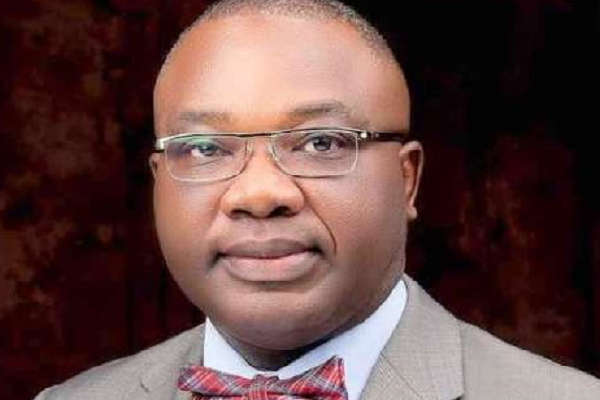
The National Human Rights Commission, NHRC, has praised Nigerian journalists for their immeasurable contributions to the successes recorded in the fight against human rights abuses in the country as well as sensitization of citizens on their rights and opportunities available to them to seek redress.
The Executive Secretary of the Commission, Dr. Tony Ojukwu, SAN, expressed the appreciation on Monday at the Abuja national secretariat of the organisation during the 2024 media parley organized by the Commission.
Represented by the Director, Legal Services and Enforcement, Rabi Anwar, who was flanked by Mr. Obinna Nwakonye, Director, Public Relations and External Linkages, the Executive Secretary said that the gathering was meant to celebrate the dedication of journalists, especially those. Covering the Commission, saying the achievements recorded so far would not have been possible without the passion and commitment by the media.
Ojukwu said- “Through your work, many victims of human rights abuses enjoy more human rights awareness which has assisted then in no small measures to seek redress. This has no doubt enhanced the country’s human rights ratings among the committee of nations.
“It only takes a robust and enduring partnership like the one we have with you individually and collectively, hence the achievements of this feat we are celebrating today. There is no gainsaying your commitment to objectivity, balance, accuracy, truth, as the fulcrum of professionalism has continued to make a reasonable difference in Nigeria’s media landscape.
“You are all witnesses to the increased media activities in the Commission this year. There are occasions where you transit from one media engagement to the other in a very short notice and you have never wavered, rather, you have continued to live up to the task to the fullest. This speaks volumes of your sincerity and passion for the cause of human rights. We do not take all these for granted and I make bold to emphasize that the Commission is heavily indebted to you in gratitude. In you we we truly have a dependable ally
“As a responsible institution, we shall continue to contribute our quota in building your capacity to report complex human rights issues including human rights in migration, and business and human rights among other emerging human rights matters. We have already commenced training for journalists in this regards and we hope to work with relevant international partners to ensure that you benefit more in the coming years.
“As our token of appreciation to you, the Commission has instituted a yearly media award to further register our immense regards for your unalloyed support to the Commission. The awards ceremony holds yearly during the commemoration of the International Human Rights Day (IHRD). I therefore use this opportunity to appreciate the outstanding journalists who were honoured during the celebration of the 2024 IHRD
“The Commission so much value your techniques of storytelling, and your ability to narrate human rights issues in such a manner that our audience could appreciate and follow developments in the Commission. You have severally demonstrated this through detailed personality interviews, special reports, impactful editorials, features and news analyses. We do not take such dogged services lightly. Hence, we remain eternally grateful.
“God soaring our lives, I want to assure you that we will continue to strengthen our relationship with the media. We are committed to openness, transparency and collaboration and we look forward to creating more impactful stories together.
“I want to thank you, once again, for your unrelenting efforts, professionalism, and partnership. The role you play in shaping narratives and informing the public is invaluable, and we are honoured to have you as our allies .
“As the year draws to a close, I wish you all, a peaceful and joyous holiday season and a prosperous New Year. We are eagerly looking forward to more years of mutually benefitting partnership,” Ojukwu concluded.
News
Ned Nwoko receives Doctorate from top US university, marks birthday in style
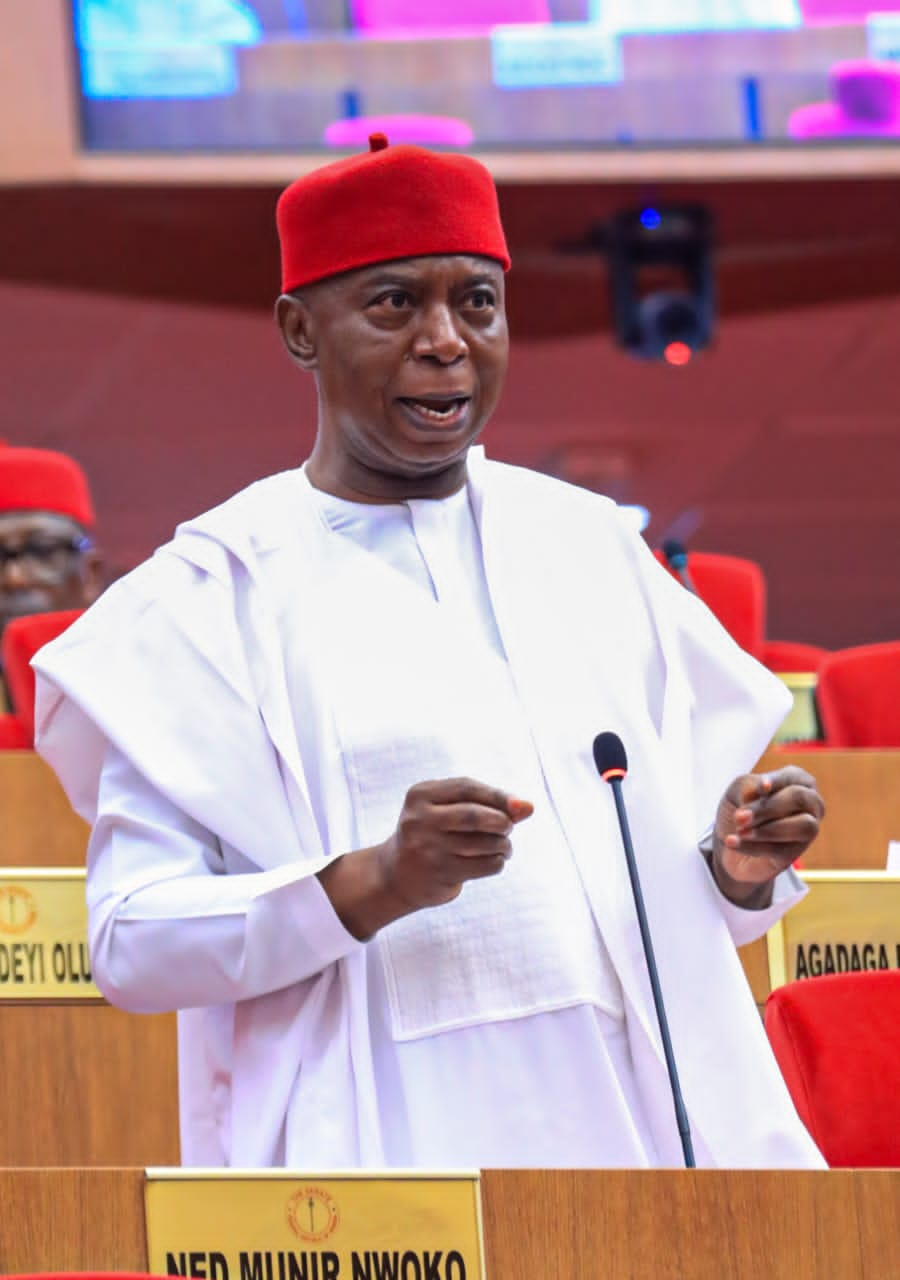
A Nigerian billionaire lawmaker, environmental activist and philanthropist, Senator Prince Ned Munir Nwoko, has been has been conferred with an Honorary Doctorate Degree in Diplomacy and Reparative Justice by the prestigious NextGen University International, USA.
This comes in recognition of his commitment to humanitarian causes, legislative excellence, and impactful leadership both in Nigeria and globally.
The award was conferred during celebrations marking Senator Nwoko’s 64th birthday on December 21, 2024. The event, held at his hometown Idumuje Ugboko, Delta State and was attended by political leaders, community stakeholders, and supporters who gathered to celebrate his remarkable achievements.
Born on December 21, 1960, Senator Ned Nwoko hails from the Nwoko Royal Family of Idumuje-Ugboko, Aniocha North Local Government Area, Delta State. His journey has been marked by relentless dedication to public service, philanthropy, and governance.
Through his Ned Nwoko Foundation, the Senator has spearheaded numerous initiatives in education, healthcare, environmental sustainability, and social welfare, positively impacting countless lives in Delta North Senatorial District and beyond.
His legislative contributions in the 10th Nigerian Senate reflect his dedication to national development and the well-being of his constituents. Senator Nwoko is known for his advocacy on malaria eradication, youth empowerment, and infrastructural development.
NextGen University International, USA, is a globally accredited institution, recognized by the World Accreditation Commission, in partnership with UNESCO, and affiliated with organizations such as the Association of Universities of Asia and the Pacific (AUAP) and the Board of Quality Standards (BQS).
The university, under the leadership of Prof. Sir Dr. Shaik Mohammad Rafi, is renowned for its commitment to academic excellence and its dedication to honoring individuals who demonstrate exceptional leadership and service to humanity.
Senator Ned Nwoko’s contributions to diplomacy, reparative justice, and humanitarian causes earned him this prestigious recognition. His efforts include:
The award also acknowledges his legislative achievements, including his recent motion for healing and redress regarding the Asaba Massacre of 1967 during the Nigerian Civil War.
Senator Ned Nwoko is not only a politician but also an accomplished lawyer, businessman, and philanthropist. Educated at Keele University and King’s College London, he holds a Master’s degree in Maritime and Commercial Law and was called to the English Bar at Lincoln’s Inn.
As the Chancellor of Sports University, Idumuje-Ugboko, Nigeria’s first sports-focused tertiary institution, he continues to push boundaries in education and sports development.
The dual celebration of his 64th birthday and the honorary doctorate award was marked by gratitude and reflection. Supporters from across Delta State and Nigeria celebrated the Senator’s leadership, commitment, and continued advocacy for development.
In a formal letter of appreciation to the university, signed by his Communication Manager, Senator Ned Nwoko expressed his gratitude:
“We write to appreciate you for the honor done to the Senator with the award of an Honorary PhD in Diplomacy & Reparative Justice. This recognition will encourage the Senator to do more, and we assure you of his best wishes.”
As Senator Ned Nwoko continues his mission of service, his recognition by NextGen University International, USA, serves as a testament to his impactful legacy. His story remains an inspiration to leaders, change-makers, and future generations dedicated to building a better society.
News
Atiku says Tinubu’s 2025:budget can’t solve Nigeria’s problems
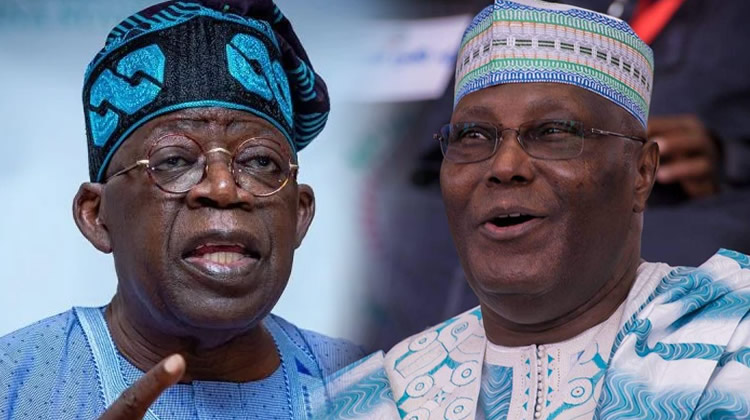
Former vice president and presidential candidate of the main opposition Peoples Democratic Party, PDP, in the 2023 general election, Atiku Abubakar,, has criticized the 2025 budget estimate presented to the national assembly by President BolaTinubu, saying it is inadequate to foster sustainable economic growth and curtail Nigeria’s deep-rooted challenges.
In a statement on Sunday, Abubakar said the budget shows a business-as-usual fiscal practice and increases Nigeria’s external debt burden.
“The 2025 federal budget, amounting to N48 trillion with a revenue forecast of N35 trillion, resulting in a deficit exceeding N13 trillion or 4% of GDP, reflects a continuation of business-as-usual fiscal practices,” he said.
“This represents a persistent trend under the APC-led administration since 2016, wherein budget deficits have been consistently presented, accompanied by an increasing reliance on external borrowing.
“To bridge this fiscal gap, the administration plans to secure over N13 trillion in new borrowings, including N9 trillion in direct borrowings and N4 trillion in project-specific loans.”
Abubakar said the borrowing strategy is similar to the approach of previous administrations, increasing public debt and exacerbating the attendant risks related to interest payments and foreign exchange (FX) exposure.
‘Weakened Budgetary Foundations, Disproportionate Debt Servicing’
The former vice-president further highlighted lapses identified in the budget.
“Weak Budgetary Foundations: The 2024 budget’s underperformance signals poor budgetary execution. By Q3 of the fiscal year, less than 35% of the allocated capital expenditure for MDAs had been disbursed, despite claims of 85% budget execution,” he said.
He said the underperformance in capital spending, crucial for fostering economic transformation, raises concerns about the execution of the 2025 budget.
“Disproportionate Debt Servicing: Debt servicing, which accounts for N15.8 trillion (33% of the total expenditure), is nearly equal to planned capital expenditure (N16 trillion, or 34%),” Abubakar said.
“Moreover, debt servicing surpasses spending on key priority sectors such as defence (N4.91 trillion), infrastructure (N4.06 trillion), education (N3.52 trillion), and health (N2.4 trillion).”
He said the imbalance would likely crowd out essential investments and perpetuate a cycle of rising borrowing and debt accumulation, threatening fiscal stability.
“Unsustainable Government Expenditure: The government’s recurrent expenditure remains disproportionately high, with over N14 trillion (30% of the budget) allocated to operating an oversized bureaucracy and supporting inefficient public enterprises,” Abubakar said.
He added that the “lack of concrete steps to curb wastage and enhance the efficiency of public spending exacerbates the fiscal challenges, leaving limited resources for development”.
“Insufficient Capital Investment: After accounting for debt servicing and recurrent expenditure, the remaining allocation for capital spending, ranging from 25% to 34% of the total budget, is insufficient to address Nigeria’s infrastructure deficit and stimulate growth,” the politician said.
He said it amounts to an average capital allocation of about N80,000 ($45) per capita, insufficient to meet the demands of a country “grappling with slow growth and infrastructural underdevelopment”.
The administration’s decision to increase the VAT rate from 7.5% to 10% is a retrogressive measure that will exacerbate the cost-of-living crisis and impede economic growth,” Abubakar said.
He said by imposing additional tax burdens on an already struggling populace while “failing to address governance inefficiencies,” the government risks stifling domestic consumption and further exacerbating economic hardship.
Abubakar said the 2025 budget lacks the “structural reforms and fiscal discipline” required to address Nigeria’s multiple economic challenges.
“To enhance the budget’s credibility, the administration must prioritize the reduction of inefficiencies in government operations, tackle contract inflation, and focus on long-term fiscal sustainability rather than perpetuating unsustainable borrowing and recurrent spending patterns,” he said.
Abubakar said a shift towards a more disciplined and growth-oriented fiscal policy is essential for the nation’s economic recovery.
-

 News1 year ago
News1 year agoBreaking: Tinubu’s authentic ministerial nominees
-
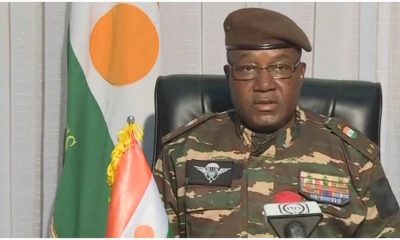
 News1 year ago
News1 year ago“Anytime we want to kill terrorists, President would ask us to take permission from France but they were killing our soldiers-” Niger Republic coup leader
-
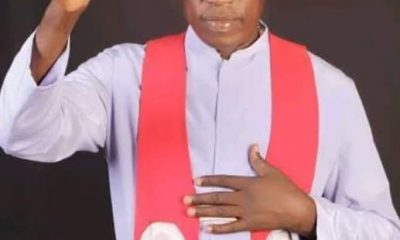
 News1 year ago
News1 year ago“I’m leaving the Catholic church because Bishop Onah is oppressing me,” says Okunerere
-
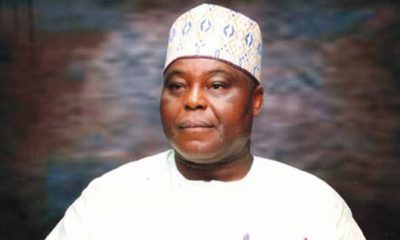
 News1 year ago
News1 year agoDokpesi and the Gazebo Mystique
-

 News1 year ago
News1 year agoRadio Nigeria’s veteran broadcaster Kelvin Ugwu dies three months after retirement from service
-

 News2 years ago
News2 years agoTsunami: Tinubu orders dissolution of managements, boards of MDAs, to sack all Buhari’s political appointees
-

 News8 months ago
News8 months agoPersons against Allagoa’s reforms behind protests at NSITF
-

 News2 years ago
News2 years agoLast minutes fever: Nigerian Hunters Service optimistic as Buhari signs five Bills into law

